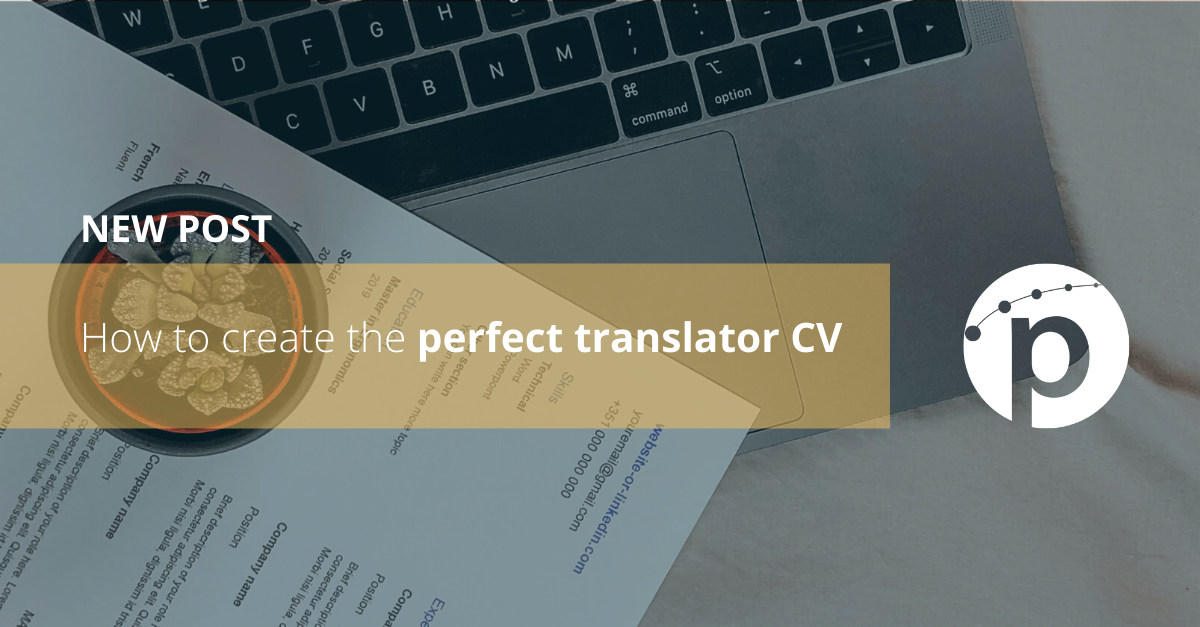Freelance translators are effectively business owners, and attracting new clients is one of their core objectives. If your business is virtual, you are probably aware that your CV is the first contact your potential clients have with your personal brand.
It is therefore the gateway to a world of clients who rely heavily on the translator's CV to carefully select the most suitable providers. Unfortunately, many freelance translators don't do themselves justice when crafting their resumes, and their client circle is therefore smaller than their counterparts' who may be less linguistically gifted, but more business savvy.
If you feel that you are struggling to expand your pool of clients despite your outstanding skills, the first thing you should look at is probably your CV. As a professional translation agency, we have to process hundreds of CVs on a weekly basis. The only actual information we have regarding our potential providers resides on his or her translator CV.
Professional translation agencies obviously take a step further and test their translators to validate their linguistic skills, as well as experience in the field. However, your CV can be the reason your clients consider a potential collaboration with you in the first place.
What is the purpose of a translator CV?
As a freelance translator, your CV has to help you:- Be added to a database at a translation agency. This means that your CV has to convince the translation agency that you are suitable for the job offer and that you have the required skills and abilities. Being added to the database gives you the opportunity to receive future projects from this translation agency.
- Receive future projects that are relevant to your field of expertise. Translation agencies often turn to their database to select the provider with the best profile. For this reason, your CV should reflect your skills as clearly as possible. If you do not represent your experience as a technical translator on your CV, the translation agency won't be able to assign these tasks to you and you might be missing out on projects that you would otherwise excel at.
As such, your translator CV should be able to convince the employer that you are suitable for the job, and contain the correct keywords to give you direct access to the projects that correspond to your field of expertise. Some examples of tailor-made online CV templates can be found here.

How a perfect translator CV can make you stand out in the eyes of your recruiter
What are some essential elements in a translator CV?
Once you have specified your target audience, you have to create a tailor-made CV that gives your recruiter the right signals to increase your chances of appealing to him or her. Some of the most essential elements in a translator CV are:- Relevant experience in relation to the job offer. This field has to be directly connected to the experience required by the job offer. You will not impress the recruiter who is searching for a medical translator by flaunting your experience in marketing translation. In other words, the relevant experience must be placed at the top of the resume to make it more noticeable to recruiters. Irrelevant skills can also be included, but they should be mentioned at a later stage in the CV.
- Quantifiable achievements. This field gives the recruiter a clearer idea of your experience. For example, "150K translated words for Apple" sounds a lot more impressive than "I've done a lot of translation work for a technology company." The more specific you are, the stronger the trust signals you give your recruiter are. Remember if your recruiter cannot speak the target language he or she is recruiting you for, they will be desperately searching for solid experience that proves the translator's experience.
- Examples of what makes you unique. This field should contain additional virtues that correlate to the job offer. For example, if the job offer highlights the need for urgency and you have excellent time management skills, make sure you clearly represent that on your CV. This way, if other applicants are equally experienced as you in the required field, your unique skills and work ethics can help you stand out. The most important thing is for your skills to be related to the job and to be completely transparent.
- Translation samples. This field is optional but can be an added bonus to give your recruiter a clear demonstration of your language skills. As the saying goes, "seeing is believing" and nothing can help you gain your recruiter's trust more than seeing you in action. It would also give them a glimpse of your past experience, which further validates it. If the subject of the sample translation is related to the field in the job offer, it will enhance your chances of getting the job even more.



